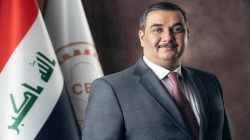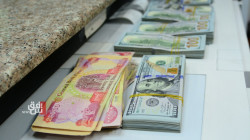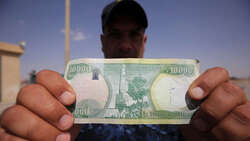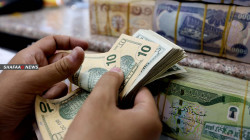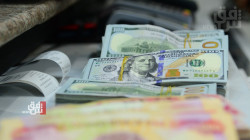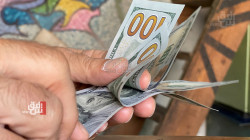Demands to revaluate the dinar, the government responds
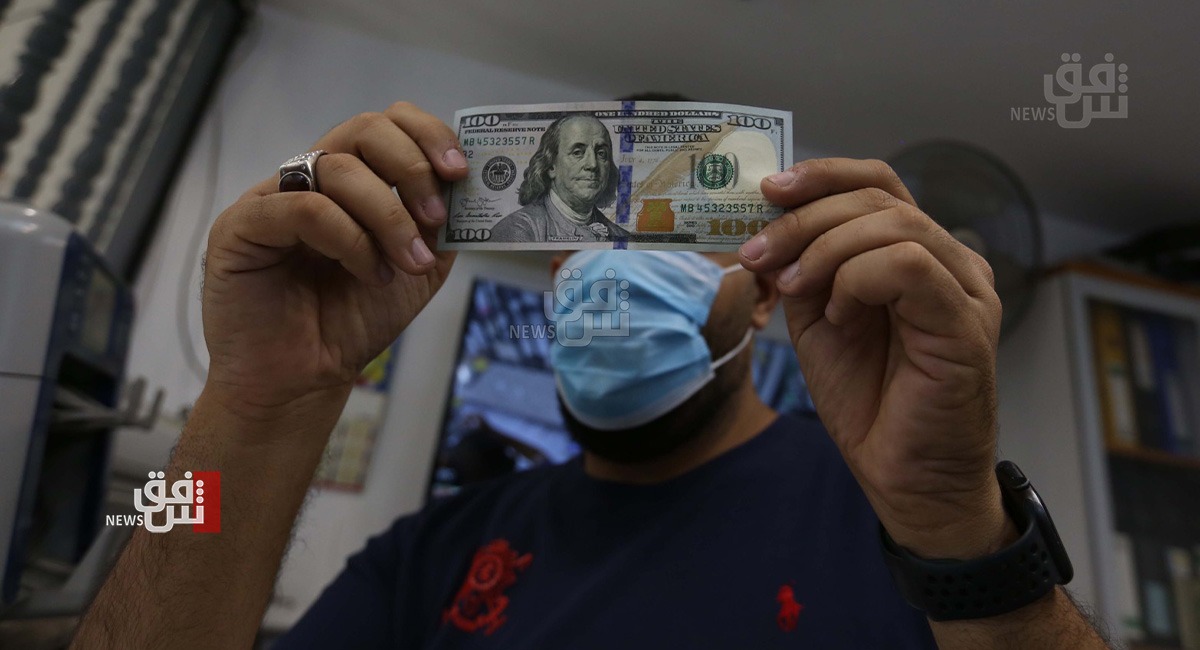
Shafaq News / Devaluating the Iraqi dinar in the 2021 budget has stirred the discontent of the public, and economic and financial experts alike. In spite of the warnings from its negative economic and social reverberations, the Iraqi Ministry of Finance ascribes it a breakthrough amid a stifling economic crisis that has struck the country.
Last December, the Central Bank of Iraq (CBI) opted to raise the exchange rate of the U.S. dollar from 1,182 dinars to 1,460 dinars to alleviate the ramifications of the plummeting oil revenues, bringing down the value of the Iraqi national currency and the purchasing power immediately.
As oil prices gradually climbed beyond the 80 dollars a barrel threshold, citizens and economists voiced demands to revaluate the dinar in next year's budget or mitigate the impact of its devaluation on the community.
"The rise is an outcome of a white paper that organizes the process over three to five years. They deem it a part of the economic reform process for the financial situation and banks," economist Bassem Jamil Antoine told Shafaq News agency, "the state cannot change its currency. Still, real reform that serves the poor classes is essential."
“The currency rate is not as vital as compensation for the poor classes, which constitute the bulk of the population; social welfare, ration card availability, and job development are all critical," he said, "unemployment and poverty rates skyrocketed due to lack of job opportunities in the public sector. On the other hand, the private sector is frozen and unable to function properly."
"The recovery of oil prices must compensate for the people, address the deficit, and provide job opportunities for unemployed youth. This will reinvigorate the market, put an end to corruption, and activate the private sector," he said.
Gradual Revaluation
Economist Dhurgham Mohamed Ali said that revaluating the dinar shall be contingent upon several factors, "The exchange rate of the dollar should be gradually reduced to 1,300 dinars while keeping an eye on the cash transactions to preclude creating a black market, dollar smuggling, and tighten the control over imports."
"The outcomes of the devaluation were detrimental. The inflation rates grew, poverty rates soared, while development rates remained static and foreign currency smuggling exacerbated," Ali added.
Neglecting the private sector
"The government has not contributed to reducing the poverty gap and unemployment after raising the dollar rates that inflicted all the strata of society," trader Amir Mohammed al-Hasani told Shafaq News agency, "Its concern was how to pay the salaries of officials and ministers without considering the negative aspects of the devaluation."
"The government should have combated the widespread corruption in the Iraqi state, revived the private sector by eliminating the obstacles hindering its growth and activating laws that would provide support and protection to this important sector," al-Hasani said.
"The rise in the dollar has hurt us as foodstuff prices have risen to more than 30% despite the steady salaries we earn," Hussein al-Khafaji, an employee of the Ministry of Education, told Shafaq News agency.
"My salary ends by the middle of the month, forcing me to look for another job to meet the needs of the family," he said, calling on the government to revaluate the dinar.
For its part, a government source told Shafaq News agency that the dollar rates will remain unchanged in the fiscal year 2022.
"There is no change or incident that causes the exchange rate to change," the source said, adding, "the Ministry of Finance has confirmed this."
"Over the previous nine months, the ministry has constantly followed the indicators of devaluation against the dollar," the Ministry of Finance stated on October 5, 2021.
The exchange rate alteration has contributed to a rise in the Central Bank's foreign reserves to 60 billion dollars in April 2021, up from 54 billion dollars in December 2020.
According to the Finance Ministry, the currency rate shift also helped "reduce the demand for foreign currency, lower the dependence on imports, and enhance local production."
"In the context of the crisis, there has been a clear recovery in corporate activity in the last nine months of this year," the Finance Ministry stated.
According to the ministry, it is working to "reinvest the revenues of the funds achieved to build a target production base outside the oil sector and rely on other sectors, which will contribute to the decline in demand for the dollar as a result of compensating some of the goods produced."
Since the current government's formation, the ministry has adopted plans and mechanisms to reform Iraq's fiscal policy, culminated in adopting the "White Paper", which outlined future economic and financial policy steps to promote domestic production and reduce imports for the country.
